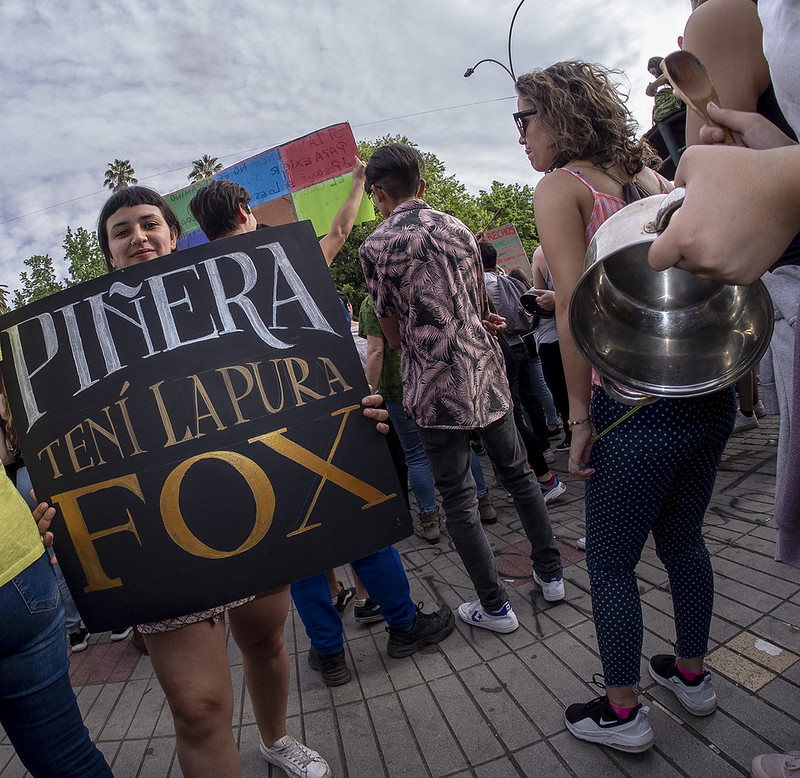Sebastián Piñera, former president of Chile, has died tragically in a helicopter crash in Lago Ranco, Los Ríos region. This event has provoked various reactions and reflections on his life and actions as a politician and businessman.
In a critical text, the writer Jorge Baradit expresses his concern that the right wing is using Piñera’s death to whitewash his image, pointing to his negative actions during his mandate, such as his resistance to raising the minimum wage, touching the AFP system and facing social problems such as the social outbreak of 2019. Baradit describes Piñera as a financial speculator who has taken advantage of legal loopholes, faced accusations, and contributed to the impunity of billionaires in Chile.
On the other hand, the article by journalist Hugo Guzmán in “El Siglo” (a media outlet of the Communist Party, which is now in government) highlights the political impact of the death of Piñera, who was involved in articulating and advising the Chilean right-wing, even being mentioned as a possible presidential candidate in 2025. His participation in politics, his role in the opposition and his influence on Latin American and European rights are mentioned.
However, the biographical account of his life provides a broader context of Piñera’s life, from his beginnings as a commercial engineer to his political roles as senator and president in two terms (2010-2014 and 2018-2022). His involvement in business and financial scandals, such as that of the Banco de Talca, as well as his controversial role during the 2019 social protests, in which he declared war on his people, and his intervention in international affairs, such as his attempt to overthrow Venezuelan President Nicolás Maduro.
The coverage of his funeral highlighted the presence of various politicians who paid tribute to the former president. Despite political differences, some ministers of the current government recognise the importance of giving him a state funeral, while President Gabriel Boric, in his speech at the funeral, allows himself a turn in public appreciation and discourse about the deceased, moving from a warning about the prosecution of political responsibility for the deaths and eye mutilations that occurred during the popular uprising of 2019 to an acknowledgment of the virtues of his government.
The leftist sociologist Alberto Mayol, in an article for the press, reads Boric’s behaviour as evidence that the Frente Amplio has run its course since in this presidential narrative we see the definitive loss of the heart of the political line that is now formally in power. The social and political consequences of the blurring of the differences between the political currents, according to Mayol, will be disastrous for democracy today and in the immediate future, since it will be clear to the public that the whole arc is finally a single bloc that supports power and the maintenance of the privileges of the elite and the abandonment of the needs of the working and retired majorities.
On the other hand, some sectors of the right wing considered him a formidable leader and a key articulator in the political sphere. Even as a possible presidential candidate for the sector. Piñera was actively involved in politics, influencing decisions and positions within his coalition, as well as maintaining links with the right at regional and international levels.
In short, the construction of the right-wing narrative of Piñera’s “life and work”, in the most faithful reproduction of what we saw in the film Orwell 1984, had the full deployment of the country’s mass media in the hands of the elite, in marathon days of unbearable manipulation, from the news, matinees, special programmes on television, as well as in the written media and social networks, reaching incredible excesses that wash the image and place him in the category of hero, statesman and invaluable model.
The goodness of liberal laws, even progressive ones, is attributed to him as the hallmark of his attributes, ignoring the fact that each one of them was articulated and pressed for by organised citizens during years of work, of mobilisation in a context of persecution and violence, so that the power finally had the political need to legislate on the matter, which always fell short or in the minimum of “yes”.
Amid this media circus, what remains is the citizen’s reflection on the power of manipulation displayed, shamelessly, without shame, by the owners of the “publishing house in Chile”. They can do it, the question is whether we will believe them or whether we, as civil society, will sharpen our critical gaze.
In the football stadiums, amidst the consternation of the right-wing and the president with his entourage of aides, people are shouting: “Piñera CTM, murderer like Pinochet”. This cry, which was repeated several times, penetrated the screens of the homes watching the Colo Colo game, but the commentators did not comment on it.
It put an end to the ‘piñericosas’ and, hopefully, to the unfounded faith that citizens have had in the leadership of recent decades. Sooner rather than later, people will disbelieve in the delegation of power and take responsibility for building from the collective to the cooperation and convergence of diversity, ushering in an era of popular sovereignty.
Collaborators: Ricardo Lisboa Henríquez; M. Angélica Alvear Montecinos; Guillermo Garcés Parada; Sandra Arriola Oporto and César Anguita Sanhueza. Public Opinion










